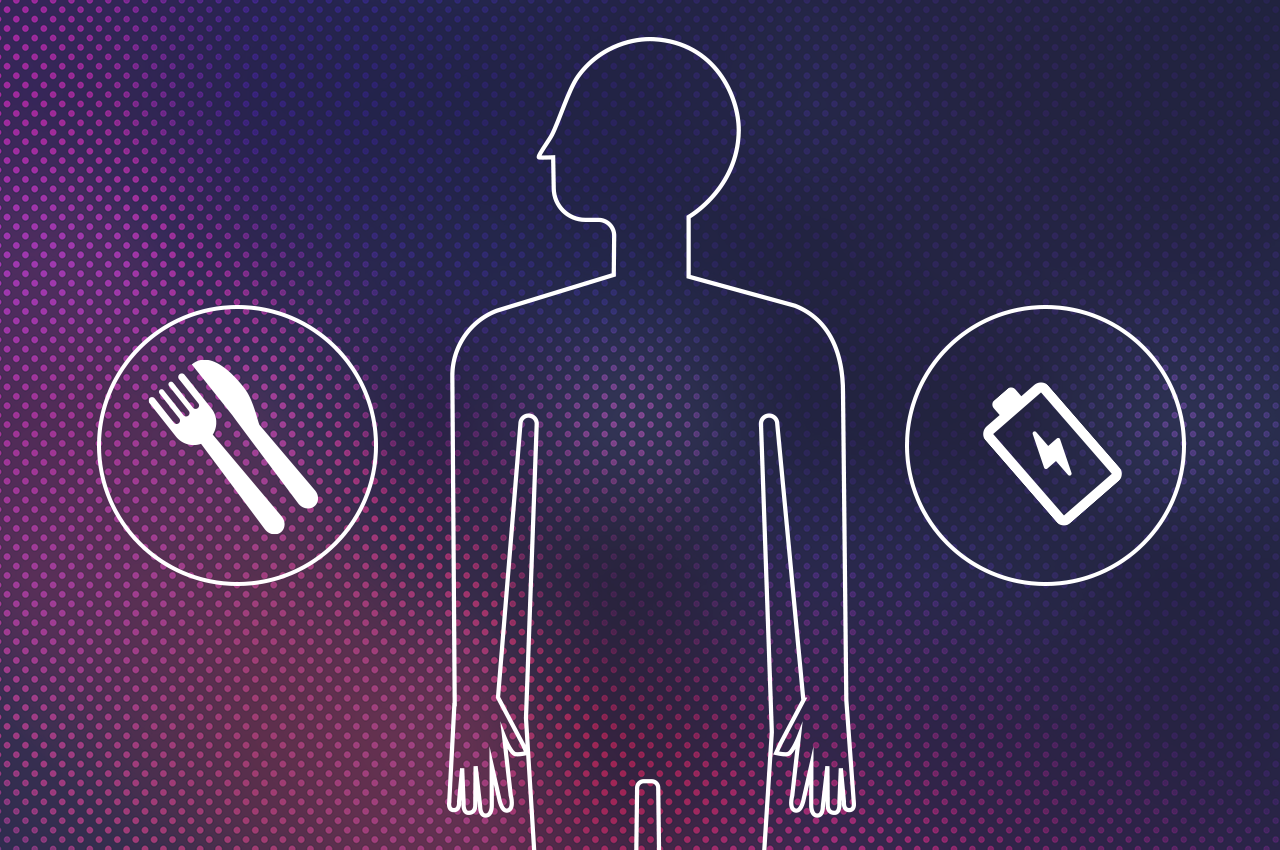Growing up you may have heard about how certain foods are better for your health than others, some foods are considered “brain foods” and some provide you with energy.
But, how does it work? Let’s break it down.
Your muscles, brain, heart, and liver all need energy to work. This energy is supplied by the foods you eat. Whether you’re sleeping, awake, exercising or chilling on the couch, your cells need a constant source of energy to allow them to carry on their important metabolic jobs.
Your body gets energy from food by converting fats and proteins into energy for muscles, while carbohydrates are converted into sugars.
What happens when you eat?
- After you eat, molecules in the digestive system break down proteins into amino acids, fats into fatty acids, and carbohydrates into simple sugars (glucose). Just like sugar, amino acids and fatty acids can be used as energy by the body if necessary.
- Your body digests the food by mixing it with fluids like acids and enzymes, which are found in the stomach.
- The body breaks down the sugars so that the energy released can be distributed around the body and used as fuel by the body’s cells.
- These different compounds are absorbed into the blood, which carries them to the cells. In the cells, other enzymes act to speed up or regulate the chemical reactions involved with “metabolising” the compounds. The energy from these compounds can be released for use by the body or stored, mostly in the liver, muscles, and body fat.
How does this affect your health?
Junk food and treats are typically light on essential nutrients and heavy on ingredients that cause health problems. So, those late-night snacks and fizzy drinks may satisfy hunger in a pinch, but the long-term results aren’t positive. Too many fatty and sugary foods have been linked to obesity, chronic diseases and tooth decay.
Highly processed foods are high in calories and can lead to repeated spikes in your blood sugar. Over time, these spikes may cause your body’s normal insulin response to lose momentum. This increases your risk for insulin resistance, Type 2 diabetes, and unwanted weight gain.
The right foods
You need to make sure you eat well to fuel your body. Have breakfast to kickstart your system for the day ahead. Try to eat within an hour of waking up. If you skip breakfast, your concentration is likely to dip and you’ll start to feel exhausted.
Don’t forget to pack lunch! Have a plan for a snack. Eating regularly keeps your blood sugar levels stable and curbs the hunger pangs that would usually send you off to the nearest fast food joint. Pack some fresh or dried fruit, raw cut-up veggies, wholegrain crackers or nuts in your bag to have on the go. Stay hydrated. Drink enough water to help boost your metabolism. This will also help your body break down the food you give it.
Burning the midnight oil is the norm at university and eating right won’t only help you through the night but will also help you concentrate better. Stock up on energising and healthy study snacks like:
- Light popcorn
- Dark chocolate
- Almonds
- Fruit salad
- Homemade trail mix that consists of cashews, pumpkin seeds, sunflower seeds, pecans, almonds, dried cranberries, raisins or any other mix of dried fruit, nuts and seeds that you like.
Make healthy choices by choosing foods from the different food groups that include fruits, vegetables, grains, proteins, and dairy to get all the nutrients you need. If you are overweight, aim to get to a reasonable weight to help reduce your risk of diseases like heart disease and diabetes. Regular exercise keeps both you and your metabolism active!
References:
- https://www.livestrong.com/article/496198-how-does-our-body-change-food-into-energy-we-can-use/
- https://wa.kaiserpermanente.org/healthAndWellness?item=%2Fcommon%2FhealthAndWellness%2Fconditions%2Fdiabetes%2FfoodProcess.html
- https://healthyeating.sfgate.com/happens-eat-many-sweets-fast-foods-4074.html
- https://canada.national.edu/the-10-best-brain-food-snacks-for-studying/
- https://www.healthline.com/health/food-nutrition/why-is-water-important#physical-activity
- https://www.healthline.com/health/fast-food-effects-on-body

